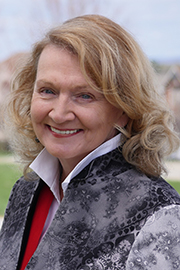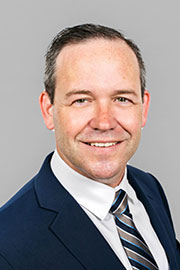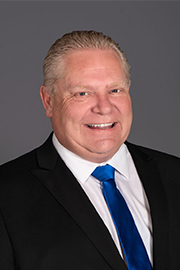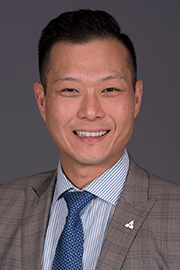- Mar/7/24 11:10:00 a.m.
With the greatest of respect, where was the member when we were increasing scope of practice for pharmacies to ensure that people did not have to access emergency departments as their only option but had the opportunity to visit their local community pharmacy? Some 800,000 people since that policy was brought into place in January 2023 have accessed that service. It’s critically important.
I look at all the investments that we are making in the Toronto region specifically related to the primary care expansion: $110 million that we’re increasing access to primary care. We are getting it done by making the investments very strategically to ensure people get access to care.
When we make investments of $110 million to make sure that we have sufficient primary care access in the province of Ontario, this member and this party votes against it. That’s what we are seeing in this government.
- Hear!
- Rabble!
- Mar/7/24 11:10:00 a.m.
This government is relentless. If there isn’t a ready-made opportunity, they will create a way to insert their friends and insiders into every public good in Ontario. They did it with the greenbelt. They did it with Ontario Place. They did it with ServiceOntario. And now they’re putting their own former Conservative staffers into the judicial system.
My question is for the Premier. How can Ontarians trust a court that has been overtly and intentionally poisoned with blatant political bias?
Interjections.
Trust in our judicial system is absolutely key to the functioning of our democracy. One only needs to look to our neighbours to the south to see where the politicization of justice leads.
How could the Attorney General possibly think that this overt and blatant politicization of our judicial system won’t erode that trust—unless that is the endgame.
Interjections.
- Hear!
- Rabble!
- Mar/7/24 11:10:00 a.m.
I just want to cast back to last year, when the member from Oakville North–Burlington brought a motion forward on Keira’s Law, saying that we should require that judges take mandatory training, as they come to the bench, and JPs take mandatory training, as they take their positions, on sexual assault and sexual violence. Do you know what happened with that motion? It was unanimously supported by this House, Mr. Speaker. When we then incorporated Keira’s Law into the Strengthening Safety and Modernizing Justice Act, 2023, everybody in the House spoke in favour of that piece of legislation.
When we talk about diversity and we want to increase the diversity of the bench, people say, “Absolutely, you need to do that.” And when we talk about raising awareness of victims’ perspectives and issues, people say, “Absolutely.” And I can tell you, Mr. Speaker—you know where this is going—when we say we want to have tough-on-crime judges and JPs, the House says, “Oh, no, no. We can’t have a perspective.” Well, we do have a—
Interjections.
- Hear!
- Rabble!
- Mar/7/24 11:10:00 a.m.
Mr. Speaker, let’s just go back 15 years. The Liberal government was the weakest government when it came to crime.
They’re okay with people kicking the doors in, putting guns to people’s heads, asking for their keys, terrifying the neighbourhood, terrifying people. We’re seeing it everywhere. And guess what happens, Mr. Speaker? They get out on bail the next day to go and do it again. And then what happens? They go out on bail again.
My great Sikh community up there that I absolutely love, they’re being extorted because these people are threatening their families, shooting up the streets if they don’t pay money. Because when we catch the people, they get out on bail, and then they get targeted again.
Everywhere I go, Mr. Speaker, I’m hearing one thing: “Keep going. Make sure you appoint judges that are tough on crime, that are going to throw the criminals in jail that are terrorizing our neighbourhoods.”
- Hear!
- Rabble!
- Mar/7/24 11:20:00 a.m.
The supplementary question.
Interjections.
Start the clock.
Once again, I’ll remind members to make their comments through the Chair.
The next question.
- Hear!
- Rabble!
- Mar/7/24 11:20:00 a.m.
My question is for the Minister of Long-Term Care. When I speak to my residents in the great riding of Newmarket–Aurora, they continue to express their top concern, which is over the ever-escalating costs of living. At a time when all communities need to be supported, the federal government continues to penalize the people of Ontario by hiking the carbon tax.
As our parents and grandparents age, the cost of building long-term-care homes remains high, and the carbon tax is making it worse. Seniors helped build our province, and our government must ensure that they continue to receive the quality of care and the quality of life that they need and deserve in a long-term-care home.
Can the minister please tell this House what our government is doing to protect Ontario families, especially our seniors, from the negative impact of the carbon tax?
While our government has been speaking out against the carbon tax since day one, the opposition NDP and the independent Liberals continue to ignore the harmful impact this tax is having on Ontario families. Despite the inaction and the lack of the sense of urgency from the opposition, we will continue to uphold our commitment to seniors in Ontario and ensure we build homes in the communities they helped build.
Can the minister please further explain how the carbon tax is affecting the long-term-care sector?
- Hear!
- Rabble!
- Mar/7/24 11:20:00 a.m.
Speaker, the member is absolutely right: Seniors did build this province and our community, so happy International Women’s Day to the many women seniors who live in our long-term-care homes. Thank you for everything that you’ve done.
I hear that concern the member raises every day in Willowdale. It’s exactly why our government embarked on a historic plan—a historic plan, led by this Premier, to build 58,000 new and upgraded spaces, the most aggressive capital plan in this country’s history. But there are challenges, and one of the biggest challenges is the cost of doing business and building, a cost that will rise, thanks to the federal Liberals’ carbon tax, 23% in the very near future.
Our government is fighting to keep costs low, fighting to build Ontario. But right now, when we are trying to build the homes for seniors to age in comfort and dignity, the carbon tax is standing in the way. Every time we try and make it easier to build, the Liberals and the NDP get in the way. I challenge them to stand up and do the right thing. Let’s scrap—
Unfortunately, the Liberals, led by the queen of the carbon tax, Bonnie Crombie, wants to do what she did in Mississauga: She wants to stop building everywhere. I’ve heard from workers, I’ve heard from lenders, I’ve heard from the operators, and they are saying that this tax on everything is costing Ontario’s long-term-care sector. It costs more to build. It costs more to take care of our seniors. It costs more to get equipment to our seniors. Costs have risen 30% in only five years.
This Premier will continue to fight for the hard-working people, the seniors who built our communities. We’re not taking any lessons from the heckle party over there. We’re getting it done—
Interjections.
- Hear!
- Rabble!
- Mar/7/24 11:20:00 a.m.
Everything that our government is doing is prioritizing the patient. Whether it is expanding scope of practice for clinicians who are already trained and ready to step up and do additional work, like pharmacists, like nurse practitioners, like registered nurses, we are working directly with them.
And I would say, when we have historic investments of $110 million in 78 primary care expansions, including one in the member’s own region of a nurse practitioner-led clinic, we are making those investments.
Will the member opposite stand up, support those expansions, support that nurse practitioner-led clinic that is going to be able to expand and offer new services and additional patients in your region?
- Hear!
- Rabble!
- Mar/7/24 11:20:00 a.m.
My question is to the Minister of Health. For years, the Ontario Medical Association has been sounding the alarm on the shortage of doctors in the province. In Kitchener, there are currently 55 open physician positions on the provincial recruitment program.
The KW chamber of commerce has said, “There are somewhere between 60,000 and 70,000 people in Waterloo region right now who don’t have ... a ... doctor.”
Kitchener is not alone; there are 2.2 million Ontarians who do not have a family doctor, and that number is going to surge to 4.4 million by 2026.
Speaker, my question to the Minister of Health: When will this government prioritize the patients and families waiting for care in Waterloo region.
A shortage of doctors causes more people to visit the emergency room, increasing wait times and putting further financial strain on this already overburdened health care.
KW is not alone; there are currently 32,000 people in Peterborough alone without a family doctor, another 28,000 in Kingston, another 10,000 in Sault Ste. Marie. This Conservative government is failing to provide Ontarians with access to primary care that they definitely deserve.
Back to the Minister of Health: When will this government finally address the crisis in Ontario and the 2.2 million people who do not have access to a family doctor?
- Hear!
- Rabble!
- Mar/7/24 11:20:00 a.m.
To the member across the aisle, why does she always vote against the increase of $20 billion more we’re spending on health care, compared to when they were in power? Why did she vote against the 10,800 more doctors that are working now than there were five years ago? Why did she vote against the 80,000 nurses that have registered to work in Ontario, 17,000 alone? Why did you vote against the medical universities? We’re building capacity in Brampton and in Scarborough and up north. Why didn’t she vote for more grads and undergrads?
That party, under the Liberals with support of the NDP, cut seats. I’m just wondering. She votes against health care. We’re making health care a lot better than it was five years ago. We’re going to continue increasing the spend when it comes to health care, but obviously, you don’t care, because you vote against every—
- Hear!
- Rabble!
- Mar/7/24 11:20:00 a.m.
My question is to the Solicitor General. In 2023, Toronto recorded close to 4,000 residential break-ins, a 30% increase from 2022. Torontonians are anxious about the rise of crime and its traumatic effect on victims who are left feeling vulnerable and violated when they deserve to feel safe in the private sanctuary of their homes.
Speaker, people are also frustrated that convicted criminals serve their time in jail only to resurface in the community to reoffend. They demand immediate action in establishing successful deterrents to crime, from the certainty of being caught to the consequences imposed upon criminals.
Speaker, can the Solicitor General explain this government’s approach to deter crime?
Interjection: Hire a gun lobbyist, right?
- Hear!
- Rabble!
- Mar/7/24 11:30:00 a.m.
Order.
The Solicitor General can reply.
The Minister of Health.
The supplementary question? The member for Hamilton West–Ancaster–Dundas.
- Hear!
- Rabble!
- Mar/7/24 11:30:00 a.m.
Thank you so much to the Solicitor General for his response.
Speaker, punishment alone may be viewed as an appropriate deterrent, but long-term solutions include the rehabilitation of criminals to motivate them to become contributing members of society. It is essential that criminals receive job training to equip them with the skills they need to work for a living rather than surviving by exploiting others.
Speaker, can the Solicitor General tell this House what steps this government is taking to break the cycle of opportunistic crime in our communities?
- Hear!
- Rabble!
- Mar/7/24 11:30:00 a.m.
The member is right. People have a right to be concerned about their safety, and public safety for this government is a top priority.
Let me say this, Mr. Speaker: Just recently, when police service budgets had to get approved in Toronto, Hamilton and in London, proxies for the Liberal Party and the NDP voted no. They do not stand as we do, having the backs, every day, of our police services.
We are not going to live and accept the fact that people can commit violent crimes on our streets and be back the next day. This is unacceptable.
That’s why, Mr. Speaker, we will continue to advocate to the federal government to move past C-48, which was a good first step. Do more so that we can keep our province safe.
But Mr. Speaker, I want to go back again: When a person is confronted with their doors being knocked in, and when they are demanded to turn over the keys, when people don’t feel safe, when our seniors don’t feel safe, something is wrong. That’s why our government will always prioritize public safety, fighting auto theft with over $51 million, fighting to keep these violent and repeat offenders off our streets with an investment of over $112 million, and putting more boots on the ground so that we, all over Ontario, can feel safe.
- Hear!
- Rabble!
- Mar/7/24 11:30:00 a.m.
Of course, thank you very much to the hard-working member.
Mr. Speaker, we were re-elected to build Ontario and part of that commitment is making sure that everyone has access to high-speed Internet. Our goal was to connect everyone by the end of 2025. We have allocated $4 billion. We have invested $2.4 billion for 200 projects across this province.
I’m really happy to provide an update. As you all know, we executed on the reverse auction last year where we took lots that were not connected. We put it out to the market, and through that reverse auction we intend on connecting 266,000 premises.
Mr. Speaker, I’m really pleased to say that White River in northern Ontario now has access to high-speed Internet, thanks to the Premier’s leadership in making sure that everyone is connected by the end of 2025. This is really important because this just proves how important connecting northern communities is to our government, and we will get the job done.
Given the size and the topography of Ontario, we knew that in order to connect every single household in the province of Ontario, we would have to explore all different types of technology and look at innovative solutions.
Mr. Speaker, to close the gaps, we are exploring satellite technology. In fact, on behalf of the province of Ontario, Infrastructure Ontario has led a new procurement. They have now narrowed it down to two satellite providers, and in the summer, we will announce the satellite provider that will connect the remaining 43,000 premises. These are the hardest-to-reach places. These are the remote communities. These are the municipalities that are surrounded by rock. Every option was explored, and we are on our way to connect every home by the end of 2025.
- Hear!
- Rabble!
- Mar/7/24 11:30:00 a.m.
My question is for the Minister of Infrastructure. Reliable high-speed Internet is key to building a stronger Ontario. People across the province depend on high-speed Internet for education, health services, business operation and to stay connected with their loved ones.
Unfortunately, the previous Liberal government ignored many rural, remote and northern communities when it came to making investments into critical infrastructure. Unlike the Liberals, our government has made it a priority to bring high-speed Internet to every community in the province by the end of 2025.
While significant work is already under way to improve and expand broadband services, we must continue to build on the progress we have made and ensure our rural and northern communities are connected.
Speaker, can the minister please tell the House what our government is doing to bring high-speed Internet access to all communities across Ontario?
Speaker, rural and remote communities have traditionally identified more connectivity challenges. We know that access to reliable high-speed Internet is a necessity, not a luxury. That’s why our government must continue to strengthen communities and deliver on our promise to build broadband infrastructure.
Can the minister please explain how our government is improving connectivity across Ontario so that no community is left behind?
- Hear!
- Rabble!
- Mar/7/24 11:30:00 a.m.
My question is to the Minister of Health. Niagara is a senior community with higher health needs, so it is concerning that our family doctor crisis is blooming from bad to worse.
Since June, residents in Niagara without a family doctor have grown from 53,000 to 73,000. That number is expected to double by 2026. St. Catharines alone needs 51 doctors right now. Family physicians alarm bell wasn’t just rung, it is blaring.
Despite promises, St. Catharines’s health teams see no base funding boost to support our already stretched, aging doctors. They are overworked, underpaid and buried in red tape. When will you halt the doctor drain and prioritize St. Catharines and seniors across Niagara?
- Hear!
- Rabble!
- Mar/7/24 11:30:00 a.m.
Speaker, you will know that we have made considerable investments in the Niagara region—not, of course, without a lot of advocacy from the member from Niagara West, Sam Oosterhoff.
It is very exciting to see the expansion, the build, the groundbreaking, which, by the way, your member that you sit beside actually attended and acknowledged was great news for South Niagara with the South Niagara Hospital—a multi-million-dollar investment in Niagara region.
The member opposite continues to ignore the fact that as we make those expansions, as we ensure that through a $110-million investment in primary care expansion—which, by the way—facts matter—includes an increase to the base of the existing health care teams.
Interjections.
- Hear!
- Rabble!
- Mar/7/24 11:30:00 a.m.
To the minister: Facts matter. Some 2.2 million Ontarians do not have a family doctor in this province, despite all of your spin. Family medicine is the backbone of our health system. Without access to doctors, we miss important early detection of cancers. Diabetics risk losing their vision without treatment, and families and women go without critical maternal and prenatal care.
Right now, 60,000 people in Hamilton don’t have a family doctor and that is expected to double in just two short years. So my question: How long is this Conservative government going to stand by and let people suffer?
- Hear!
- Rabble!
- Mar/7/24 11:40:00 a.m.
So to be clear, there are expansions in Hamilton with the Greater Hamilton Health Network and primary care stakeholder council. Is the member opposite going to support that investment?
There are investments in the—
Interjection.
Interjection.
These are historic multidisciplinary teams that are new and expanded across the province of Ontario. Is the member going to support those investments?
Because at the core, what we have is a health care system that was ignored for decades by the previous Liberal government. We are making those changes. We’ve already announced these expansions. Now, all you have to do is tell your community you are going to—
Interjections.
That program alone has seen amazing results. In the city of Guelph, as an example, we saw decreases of almost 80% in terms of the wait times for individuals who go into emergency departments. I was able to speak to the mayor earlier today to talk about how that one program has impacted their community in a very positive way.
Can we do more? Absolutely—and we will continue to do more. I think it’s really important for the member opposite to understand that these programs have been built with the input of our agencies, whether that is hospitals, whether that is nurses like the College of Nurses or the RPNAO, with paramedics, to make sure that the programs we put in place are actually impacting our communities in a positive way—
But we are working with our partners. We’re not opposing the innovation and the changes that they want to bring forward to make sure that we have appropriate health care in our communities closer to home.
- Hear!
- Rabble!















